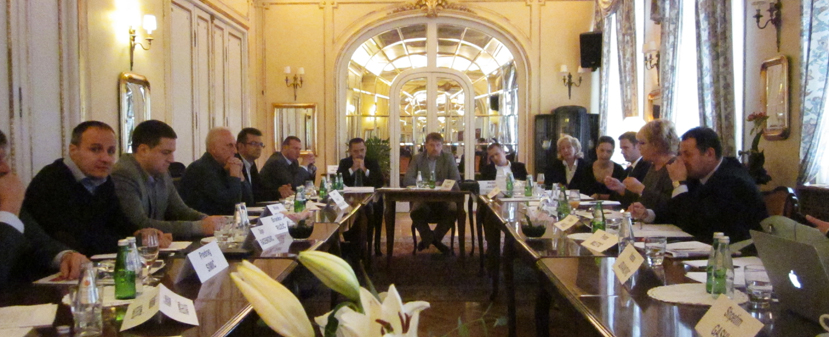The Council for Inclusive Governance organized on September 20-21 and 25, 2014 two activities for a number of Serb representatives: a workshop in Arandjelovac and a roundtable in Belgrade. The activities were part of the project supported by the Swiss Federal Department of Foreign Affairs.
The workshop participants drafted a list of suggestions and recommendations for the new Serb representatives in Kosovo’s institutions. The overall message of the workshop recommendations was that the Serb representatives should act as a political force more than as an ethnic party and thus engage on non-ethnic issues more robustly, including Kosovo’s budget, privatization, infrastructure projects such as highways, and agriculture. They should also channel their efforts and ideas through institutions. Another recommendation was that they should assist in building efficient institutions in Serb-majority municipalities as the best guarantee for a sustainable future for the Serb community.
The roundtable in Belgrade reviewed, discussed and contributed to the recommendations and agreed in supporting them. The message of the roundtable was that the Serbs should become active participants in Kosovo’s political life. The participants expected the stabilization of the situation in the north to remain challenging in the foreseeable future but supported the implementation of the Brussels agreement, though some had some reservations about the agreement and the dialogue process.
The next main challenge will be the formation of the Association of Serb-majority municipalities. A team of Serb representatives is working on the statute of the Association and many expect it to be a thorny issue once the discussions between Serbs and Pristina on the Association begin in earnest. The Serbs expect it to be a type of an institution while Pristina argues it should have the status of a non-governmental organization. The suggestion to the team working on the statute was that it should be realistic.
Some said that communication and cooperation with the Albanian community should be increased and see where the expectations of Serbs meet those of the Albanians.
The status of the University in Mitrovica received a lot of attention. Participants suggested to work towards “professionalizing and legalizing it.” A good university for the Serbs in Kosovo would play a key role as “a community without intellectuals does not advance,” a speaker said. Healthcare was another area considered important for the community. Currently, Serbian-run clinics are allowed to operate in Kosovo but are considered illegal by the Kosovo institutions.

